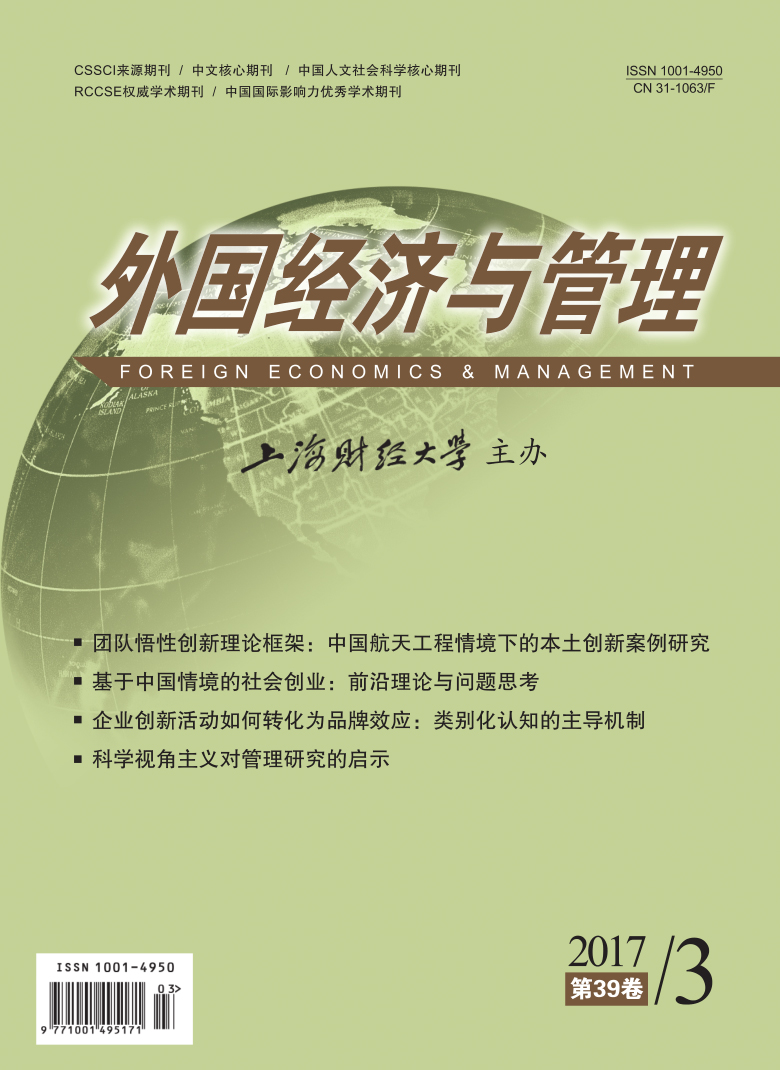From a perspective of indigenous management research, this paper studies a conceptual framework about team-level innovation based on the traditional philosophical notion of “Wu”. “Wu”-based thinking is a unique process of thinking involving intuition, non-dualistic observation, imagination, symbolism, metaphor, analogy, and insight. Based on the literature about knowledge creation and organizational learning, the new framework of “Wu”-based team-level innovation emerges from four cases of “Wu”-based knowledge creation in a Chinese aerospace team, with a special reference to the Western notion of unthematic knowledge(from the real-life world)and thematic knowledge(from the science micro world)advanced by Jürgen Habermas. This study has identified that team-level “Wu”-based innovation occurs across the levels of individual and team, and across the three phases of “Wu”-based initiation, “Wu”-based revelation, and “Wu”-based solution. It finds that “Wu”-based team-level innovation emphasizes not only utilizing the thematic knowledge to the greatest extent, but also exploring novel perspectives by evoking the “scaffolding” inspiration from the unthematic knowledge; by following the cognitive model of metaphor, team members establish an open crossover mapping between the life world and microworld to explore their underlying links for potential insights. The main contributions of this study lie in the proposed framework of “Wu”-based team-level innovation process with six specific steps: firstly, getting stuck in the thematic knowledge domain; secondly, returning to the original source as the restarting point with playful freedom; thirdly, non-dualistic observation toward suddenly getting an ambiguous idea; fourthly, triggering inspirations of the underlying link between the two mapping domains via an inspiring metaphor when exploring in a unthematic knowledge domain; fifthly, getting a clear and deep insight into the complex puzzle; sixthly, obtaining innovative solutions based on rational reconstruction with the rigorous scientific methodology. The scientific team context provides an empirical case study for connecting “Wu” and rationality as a novel inspiration to facilitate the emerging trend of East-meeting-West.
 / Journals / Foreign Economics & Management
/ Journals / Foreign Economics & ManagementForeign Economics & Management
JIN Yuying, Editor-in-Chief
ZhengChunrong, Vice Executive Editor-in-Chief
YinHuifang HeXiaogang LiuJianguo, Vice Editor-in-Chief
A Conceptual Framework of “Wu”-based Innovation at the Team Level: A Case Study on Indigenous Innovation in the Context of Aerospace Projects
Foreign Economics & Management Vol. 39, Issue 03, pp. 3 - 21 (2017) DOI:10.16538/j.cnki.fem.2017.03.001
Abstract
References
Abstract
Cite this article
Wang Xin, Li Ping. A Conceptual Framework of “Wu”-based Innovation at the Team Level: A Case Study on Indigenous Innovation in the Context of Aerospace Projects[J]. Foreign Economics & Management, 2017, 39(3): 3–21.
Export Citations as:
For
ISSUE COVER
RELATED ARTICLES




 8091
8091  8922
8922

